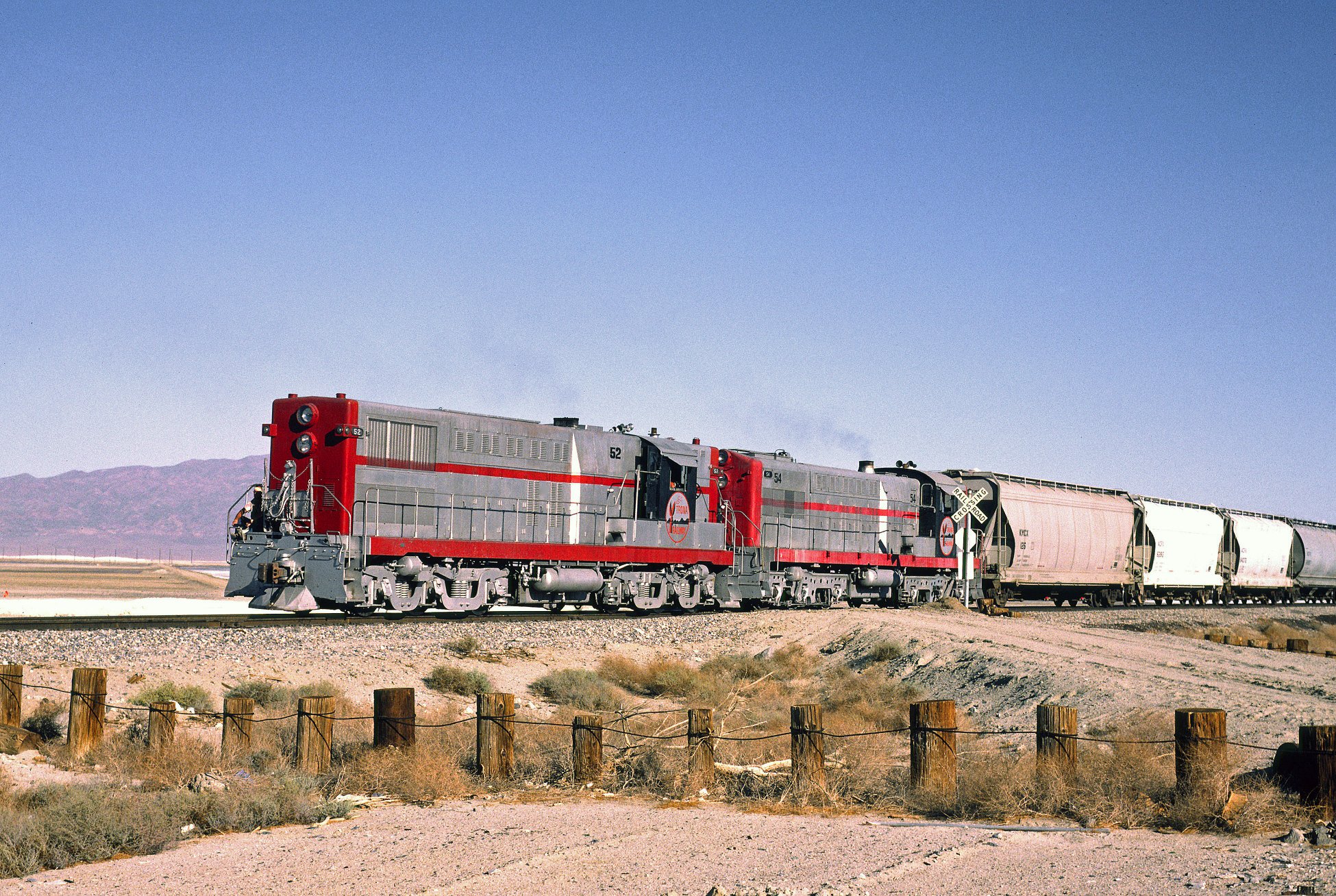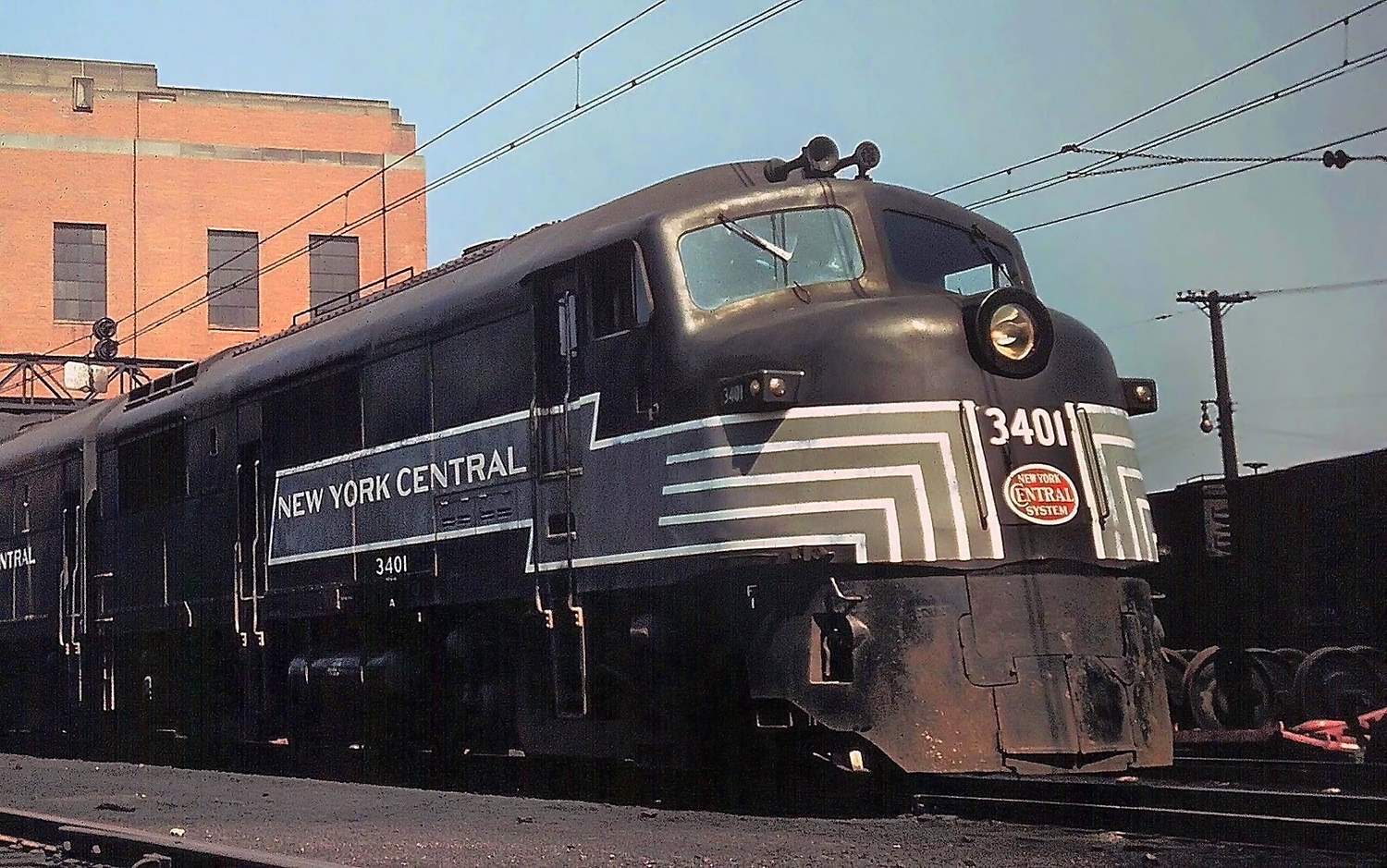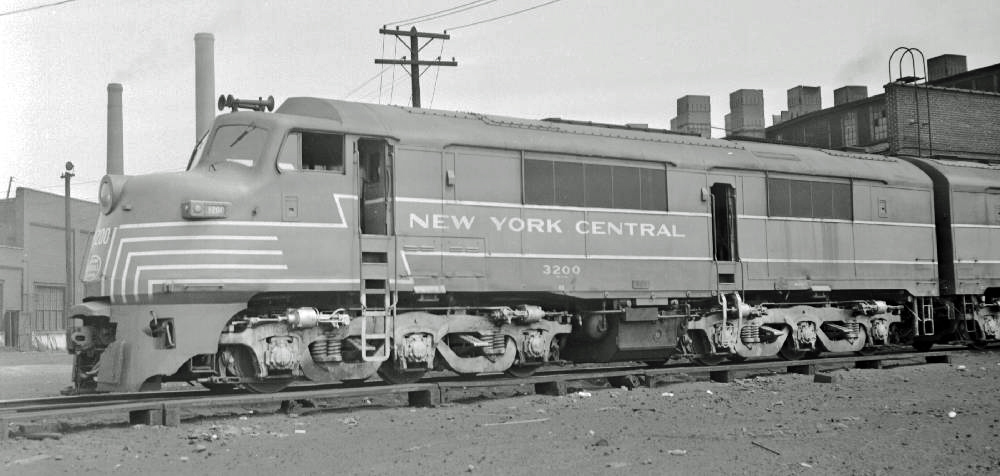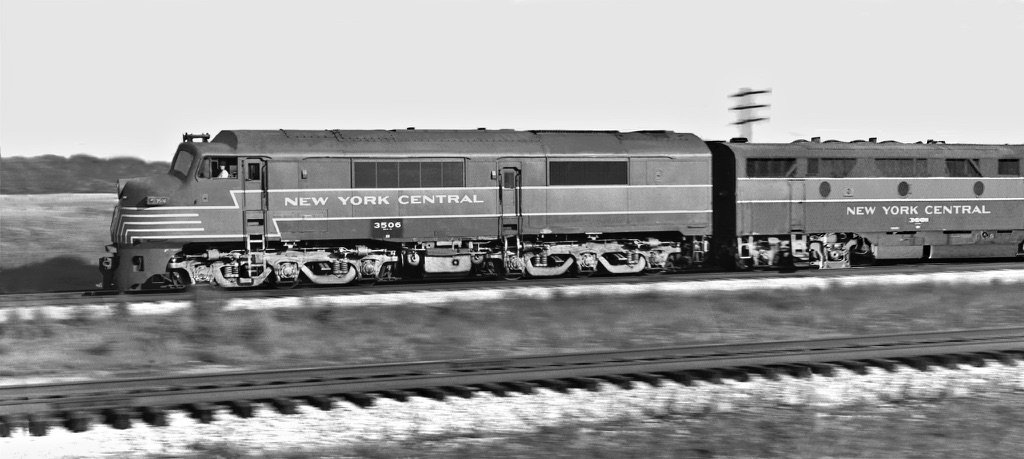
EMD 567 piston on the left, 12oz Pepsi can center, Baldwin 808SC piston on the right.
NickD said:
EMD 567 piston on the left, 12oz Pepsi can center, Baldwin 808SC piston on the right.
Holy E36 M3! ![]()
In reply to slowbird :
Baldwin's De La Vergne engine had cylinder dimensions of 12.75" bore x 15.75" stroke and operated at 625 RPM. The EMD 567 had 8.5" bore x 10" stroke cylinders and operated at 950-1000 RPM.
Lima- Hamilton, Baldwin (and B-L-H) all seemed focused on the transfer locomotive. Whitcomb (whom became a subsidiary of Baldwin) built 12 locomotives for Portugal in 1952. They were operated until 1987. Whitomb used Superior diesels (like the Ingalls 4S) in these locomotives. https://www.railpictures.net/photo/636936/
In reply to LS_BC8 :
Transfer locomotives, like branch line service locomotives, are one of those things that manufacturers seemed convinced were an untapped market. But time and time again, they discovered that railroads would really just rather assign older motive power to that job.
The Elgin, Joliet & Eastern was certainly enamored with their big Baldwin DT-6-6-2000 centercab transfer locomotives. They bought 27 of them and kept them running well into the mid-'70s, repowering 14 of them with EMD engines after the De La Vergne engines became too hard to source parts for, 11 of them with updated 606NA powerplants in place of the 606SC, and 2 of them keeping their original engine. Despite their love for the DT-6-6-2000s, EJ&E skipped the follow-up RT-624.

In reply to NickD :
I just searched, but I'm surprised I didn't find any mention online about the EJ&E's trackage rights over the C&EI to the east-central IL coal mines. As a kid it always seemed crazy that the EJ&E built a roundhouse just south of Rossville, ~100 miles south of their actual lines.
In reply to Pete Gossett (Forum Supporter) :
That's interesting. I can't think of any other circumstance where a line had a roundhouse not on their own property. That Rossville roundhouse still stands, and as of this 2013 photo, looked pretty complete.
In reply to NickD :
I spent much of my youth out there & have a couple interesting stories I could tell(in private).
There is an embankment in front of where the old office was located & 3' tall concrete letters "E J & E RR" were embedded into it. When the most recent owner purchased it I told him about them. He runs an excavation company & was able to dig them out - surprisingly still intact, and they now reside outside the entrance to the railroad museum in town, located in the old depot.
There was also a rather large YMCA on site at the roundhouse, though it was torn down years before I was around. However some of the cabinets & woodwork still exist & have been reused/repurposed around various places in town.
The last surviving New York, Ontario & Western roundhouse was here in Rome. It was a small 3-stall affair, and the turntable pit had been filled and rails covered in concrete years ago. The roof had rotted away but the walls were still sound. Sadly, the owner of the property tore it down in 2014, and wiped out the last of the O&W's roundhouses. Supposedly, the New York, Susquehanna & Western has the NYO&W's old Utica, NY turntable on their Utica Branch but it's out of order. The O&W just had a turntable in Utica, but no roundhouse. The New York Central's Utica roundhouse is still largely intact as a construction company, although the turntable is gone. And there is just an outline of where the DL&W's Utica roundhouse was.


This photo is of the building supposedly in 1956, making it one year before the NYO&W abandoned. It was just a small 3-stall affair. I'm not sure if it had more stalls and they had been removed or this was as large as it ever was. Photos of it in earlier years seem hard to find.

I'd like to try and find the DL&W roundhouse in Utica, but I'm also a little scared. Utica is a scary place. Back in the '70s, they were trying to come up with a new slogan for Utica (it was The Handshake City at the time) and the two most popular suggestions were Utica: It's Not The End Of The World, But You Can See It From Here and Utica: The City God Forgot. It hasn't gotten any better. Actually, probably gotten worse, since the mob left town. The New York City mob used to drive people up to Utica to get rid of them.
In reply to LS_BC8 :
That's because #916 was repowered with EMD 1200hp 567s and fitted with EMD control stands with conventional throttles. The giveaways that it has been repowered are the 900-series number (They were originally in the 100-series. The ones fitted with updated Baldwin power were moved to the 700 series and the EMD powered ones were moved to the #900 series), the hood that slopes upwards to meet the cab, and the cantilevered handrail stands to move the handrail away from the widened hood (required because the Baldwin engines were big inlines, while the EMD's were V12s). They also gained a VO1000 switcher-style grille on the ends. As delivered, they had smooth front ends, flat hood sides that were completely vertical, and the hood tops were completely level. Compare to the as-delivered trim:


SMS Lines' Baldwins at work. With the lower engine speeds and huge cylinders, they have a unique chugging sound where you can hear almost every cylinder firing. SMS Lines is to Baldwins what Genesee Valley Transportation is to Alcos.
Trona Railways, a 30-mile potash hauler out in the Mojave Desert was also a Baldwin haven for years. They operated an all-Baldwin fleet consisting of two DT-6-6-2000s and 3 AS616s until 1993. If you were willing to brave the conditions to go find them you could find the pristine silver, black and red Baldwins chugging across the desert landscape.


While neither of the big transfer locomotives were saved, all three AS616s were sold to SMS Lines, who has slowly been chipping away at fixing them up and getting them operational again. For example, Trona #54 is SMS Lines #554, the green road switcher shown in the video above.

Baldwin demonstrated minimal effort when it came to the cosmetics of their locomotives (with one notable exception). Their road switchers were plain, square, straight-cut affairs. Their cab units used a carbody that resembled a prepubscent EMD F-unit, with it's large windshields. Nicknamed "babyfaces" they resembled, and were perceived, as a cheap knockoff and were deeply unpopular. They were offered in a dizzying variety of configurations: 1500hp single-engine B-B trucked DR-4-4-1500s, 1500hp single-engine A1A-A1A trucked DR-6-4-1500s, 2000hp twin-engine A1A-A1A trucked DR-6-4-2000s, freakish 3000hp twin-engine 2-D-D-2 trucked DR-12-8-1500/2s and even a solitary 1000hp single-engine A1A-3 trucked DR6-2-1000 with a baggage compartment where the rear prime mover would have been. All failed to catch on, and sadly, none were preserved.

In profile, the "Babyface" becomes more apparent. The locomotives below are rare beasts, a DR-6-4-1500. Using the shorter single-engine 1500hp chassis, they were mounted with A1A trucks and marketed as a passenger unit. The 1500hp single-engine configuration was comparable with an EMD F7 or F7, but the A1A trucks were more like a bigger twin-engine EMD E-unit. But at the same time, Baldwin was offering a longer 2000hp twin-engine A1A-truck passenger locomotive that was more like an Alco PA or EMD E-unit. Apparently no one could figure out the purpose of the damn thing, because Baldwin only sold nine. Three A-units went to Seaboard Air Line and four A-units and two B-units went to New York Central.


New York Central tinkered with theirs a bit, trying to make them work. When crews complained of poor ride quality, they swapped from the delivered GSC trucks to EMD's Blomberg trucks. Then in '55, after having enough of the Baldwin powerplants, they re-engined them with EMD 567 V16s and installed EMD controls stands, allowing them to work with EMDs and Alcos and F-Ms. Apparently, they still weren't satisfied, as they took them out of service just 3 years later and scrapped them in 1960.
Chicago & North Western #5000A was a unique one-of-one unit built by Baldwin. Baldwin tried to build diesels like steam locomotives and cater each one to the railroad purchasing them, resulting in lots of custom locomotives. C&NW purchased this unit for use on local trains. Based off a twin-engine A1A-A1A passenger unit, it had the rear engine, generators and traction motors removed, giving it an A1A-3 configuration. It was called a DR-6-2-1000, for Diesel Road, 6 axles, 2 powered axles, 1000hp. While it didn't garner any more sales, from C&NW or other lines, the engine kicked around on the C&NW for a long time before being scrapped.

You'll need to log in to post.